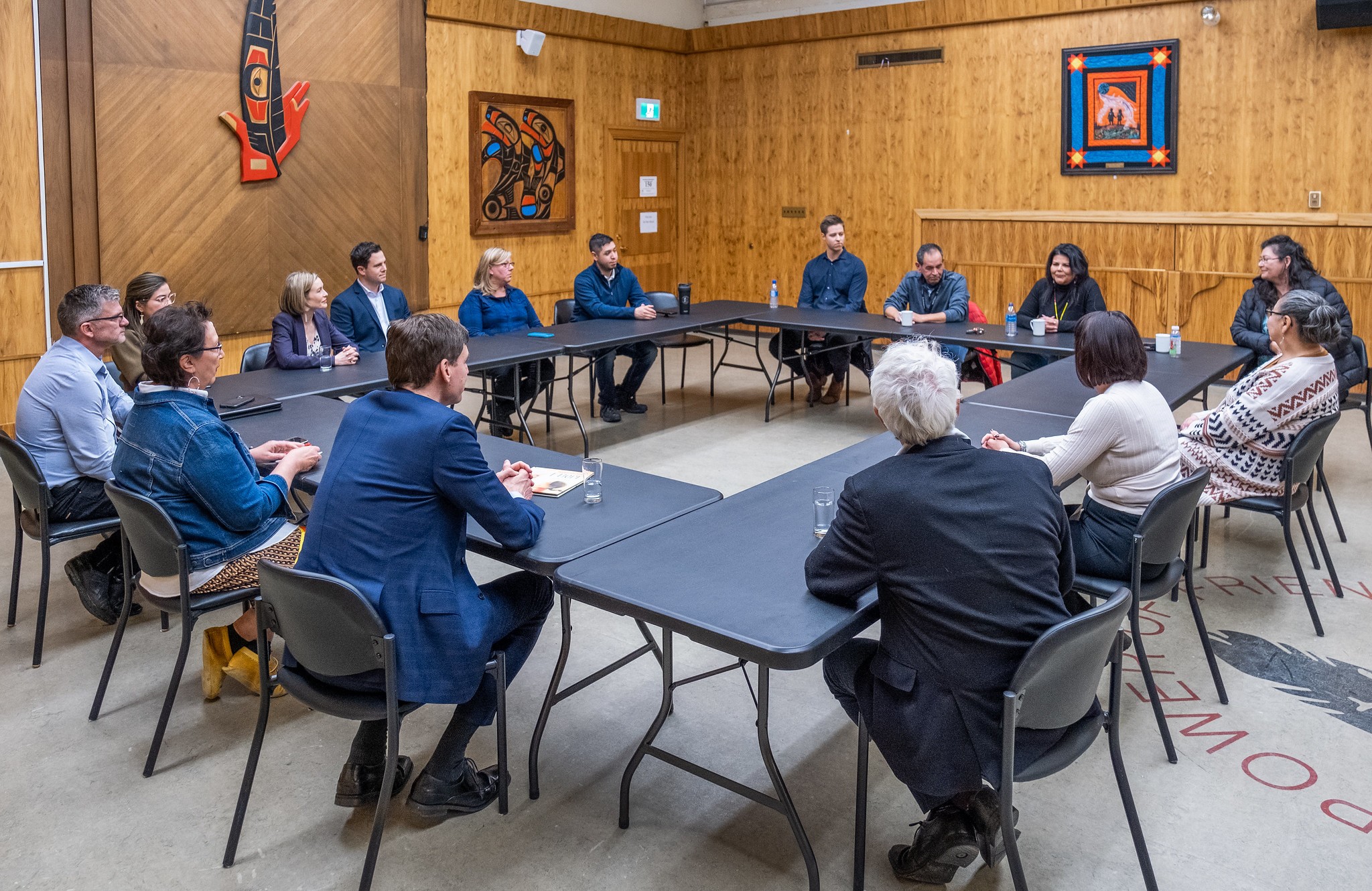B.C. helps fund Indigenous green power projects
The projects will help reduce diesel consumption

B.C. Premier David Eby meets with Indigenous leaders in Prince George. – Province of B.C.
Key Takeaways:
- $7.1 million is being spent on helping 12 First Nations communities in B.C. shift to greener energy.
- The projects include solar farms, biomass heat-and-power systems, and more.
- The funding stems from the province’s Community Energy Diesel Reduction (CEDR) program
The Whole Story:
Twelve First Nations communities throughout British Columbia will receive $7.1 million to develop alternative-energy projects and advance energy efficiency through the province’s Community Energy Diesel Reduction (CEDR) program, a CleanBC initiative.
“Our CleanBC goal is to reduce diesel consumption for power generation in remote communities by 80 per cent by 2030,” said Josie Osborne, minister of energy, mines and low carbon innovation. “By building partnerships and creating opportunities with Indigenous communities and businesses, we can help people living in B.C.’s hardest-to-reach communities save money, become less dependent on fossil fuels and benefit from cleaner air and water.”
The energy projects range in size and scope, from $350,000 for the construction of a biomass combined heat-and-power system for the Lhoozk’uz Dene Nation (Quesnel area), to $2 million to develop and build a two-megawatt solar farm on Haida Gwaii’s northern grid that will include battery storage.
The $29-million, three-year CEDR program aims to reduce remote communities’ reliance on diesel fuel, and to support projects focused on energy efficiency and/or those that provide clean, reliable energy year round in areas not serviced by grid electricity. CEDR is part of the Province’s Remote Community Energy Strategy.
British Columbia has 44 remote communities, most of which are governed by First Nations. Many of these communities are served by BC Hydro in non-grid integrated areas. Some First Nations own and operate their own diesel generators. In 2019, the remote communities consumed at least 19.1 million litres of diesel, emitting the equivalent of 51,784 tonnes of carbon dioxide.
The CEDR program provides funding for clean-energy initiatives to eligible remote communities that are off-grid residential regions that rely on diesel fuel for electricity generation. Remote communities can apply to three funding streams to support them as they progress through various stages of their planning and implementation of their decarbonization projects. Officials say this will help to ensure remote communities have financial supports throughout the life cycle of their energy projects, whether it be at the beginning, early, mid or late stages of planning, or implementation of their decarbonization projects.
To deliver the CEDR program, the province has partnered with the New Relationship Trust to facilitate investments with remote communities for community energy planning, energy-efficiency projects, and renewable-energy infrastructure. In addition, Coast Funds is working with the trust to support applications from First Nations with communities in the Great Bear Rainforest and Haida Gwaii that rely on diesel to meet their electricity needs.
A second round of CEDR program funding will be announced shortly, and applicants are encouraged to connect with the New Relationship Trust and Coast Funds for more details and assistance. Coast Funds and the trust work with all eligible First Nations and remote communities to develop strong proposals that maximize access to CEDR program funding.
“Making the switch from diesel fuel to renewable energy to heat your home or power your lights can be a challenge, especially if you live in a remote or isolated community,” said George Heyman, minister of environment and climate change strategy. “This funding will help First Nations make the shift to cleaner energy alternatives, which will reduce emissions and create economic opportunities in their communities.”
